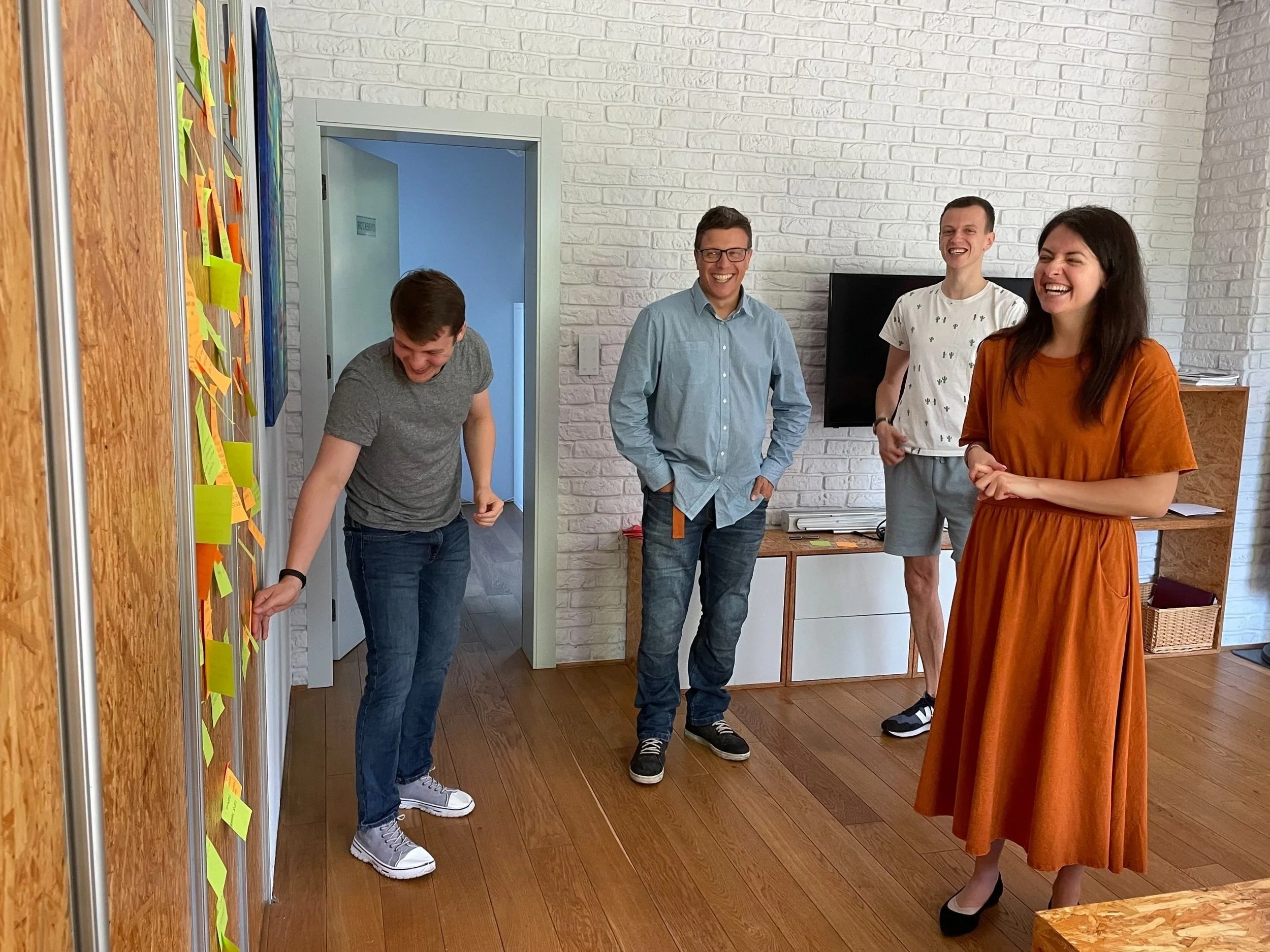For a long time, I believed that maths and programming are strongly interconnected and that learning programming requires a strictly scientific mind — something I didn’t have.
After graduating high school, I didn’t consider applying to any science majors, as I perceived them as incomprehensible and out of my reach. Computer Science was one of those majors hidden behind a wall I thought I couldn’t pass through.
That’s why I decided to go in a different direction — I chose an International Relations major with a specialisation focused on South-East Asia. I travelled a lot, learned Chinese, and had a lot of fun, but I didn’t know what career path I should follow after.
After some research and thought, I decided to apply for MA in Computer Science. It was a bold move — I was afraid I couldn’t make it, but I wanted to challenge myself and see if I found it fascinating.
I did, and I quickly landed my first job as a frontend developer. I was constantly learning more and more, and I soon graduated and found myself where I am now.
So, did my unscientific mind cause me any problems on the way?
I wouldn’t say it did, and it probably wouldn’t for you.
I want to share my observations and conclusions to make you feel more confident about your skills and possible profession and not hesitate to fulfil your dreams.
Does maths matter?
At the beginning of my journey, while still learning the basics, I came across many comments and articles about how maths is essential for a good developer.
I was pretty determined, so I didn’t take them too seriously, which was a great approach.
A software developer is quite a broad term — you can create webpages or mobile apps, work on server-side programs, take care of deployment, or engage yourself in machine learning. There are plenty of activities, and each requires a different skill set.
And while you most certainly will have to deal with maths while working on Artificial Intelligence or algorithms, you’ll probably never need it while building a website or creating a backend for your microservice.
Also, soft skills are way more important for a software developer than advanced maths. After all, the work of a software developer comes down to accurately interpreting clients' business needs and turning them into a working code.
Maths is handy but not essential
Recently, I stumbled upon a remarkable piece of code, and all it did was animate a spinning doughnut made of ASCII characters; you can check it out here. It serves as an example of what you can do with your mathematical knowledge, and it gave me an impulse to write this article.
You’d have all the right to call me a liar if I told you that maths wasn’t useful for a programmer at all.
You can do some fantastic stuff with mathematical knowledge, and the more concepts you know, the more creative things you can come up with.
In most fields, you won’t need maths daily, but there is a 1% chance of facing a problem that requires some maths concepts to be solved.
Some fields, though — like AI, cryptography, or graphic design in the game industry — can only be mastered with advanced maths. You must push yourself and start learning if you want to dive deep into it.
Challenge yourself
Ok, what if you wanted to try something that requires daily maths?
I discovered that learning new things outside the field of subjects you’re most comfortable with can be a suicide mission, but it’s also a great challenge you can benefit from.
During my studies, machine learning caught my interest. Although it required some advanced mathematical knowledge, I went for the AI specialisation and wrote my thesis about it. In the end, I wasn’t eager to continue that path, but I don’t regret choosing it as I learned a lot.
If you thought you would like to try, say, AI, don’t be afraid and don’t overthink it. Many things may scare you, but you need to get it going and try your best. Even if, in the end, it turns out the path you chose is not for you, the experience will make you grow.
Don’t hesitate to go for it even if you have to touch a little maths on the way.
The bottom line
The idea behind this article was to encourage people with no scientific mind and who are afraid of advanced maths to try their hand at software development.
Maths is a perk, an added value, not a necessity. You can do plenty of stuff without it and quite a lot with some basic knowledge. Only a fraction of activities in the IT field will require a lot of maths daily.
The worst thing you can do is to read comments on the internet about how difficult it is to be a software developer or how only scientific minds can succeed in this area.
Do things your own way, and remember you can achieve everything with the right attitude and an open mind.




